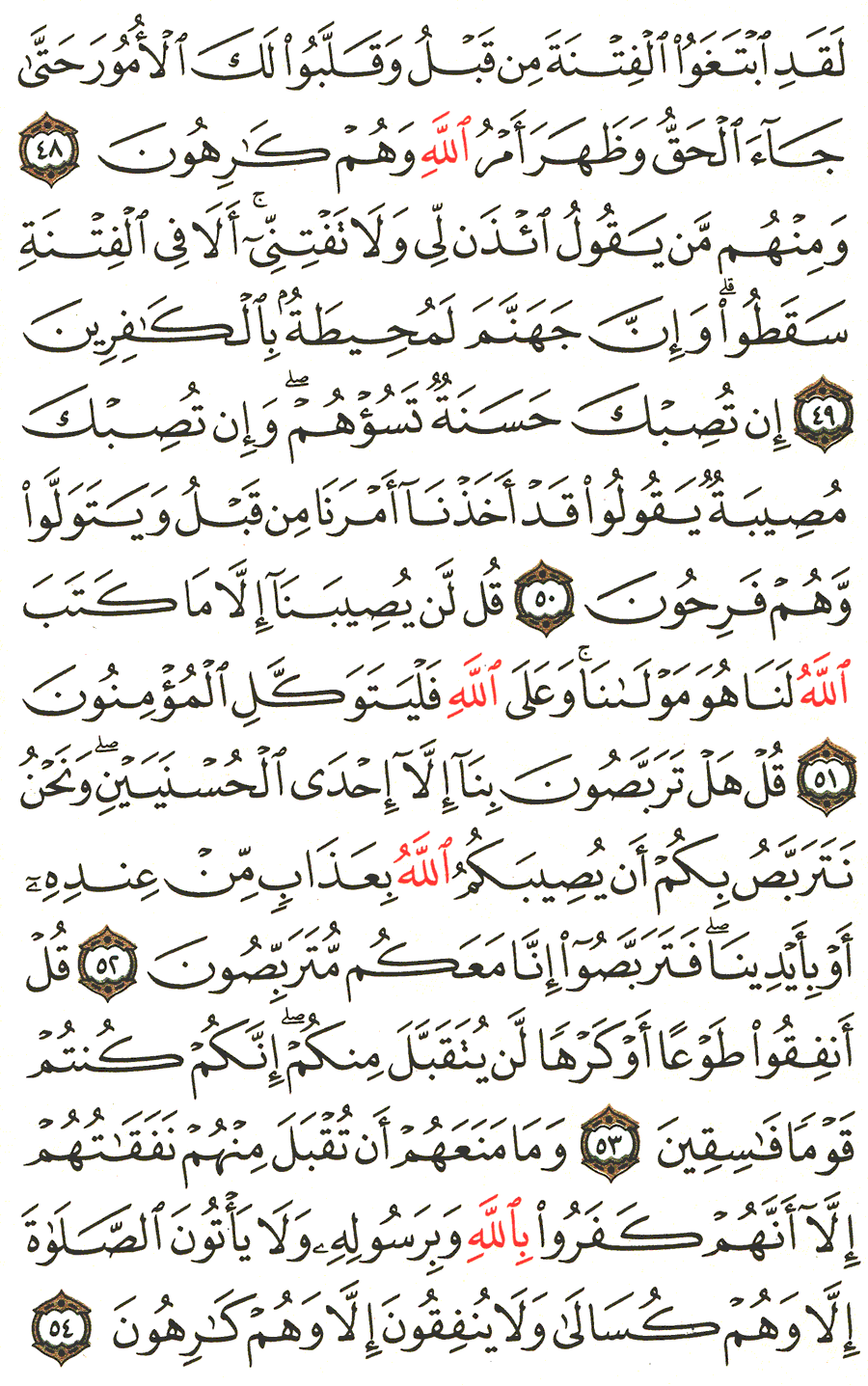Surah At-Taubah | from the moshaf in arabic uthmani
| Listen mp3 | Tafsir Arabic | tafsir mokhtasar |
| English | Indonesian | French |
| German | Hausa | Spanish |

English translation of the meaning Page No 195
Sura Al-Taubah from 48 to 54
48. Verily, they had plotted sedition before, and had upset matters for you, until the truth ( victory ) came and the Decree of Allâh ( His religion, Islâm ) became manifest though they hated it.
49. And among them is he who says: « Grant me leave ( to be exempted from Jihâd ) and put me not into trial. » Surely, they have fallen into trial. And verily, Hell is surrounding the disbelievers.
50. If good befalls you ( O Muhammad ( saas ) ) , it grieves them, but if a calamity overtakes you, they say: « We took our precaution beforehand » and they turn away rejoicing.
51. Say: « Nothing shall ever happen to us except what Allâh has ordained for us. [ 1 ] He is our Maulâ ( Lord, Helper and Protector ) . » And in Allâh let the believers put their trust.
52. Say: « Do you wait for us ( anything ) except one of the two best things ( martyrdom or victory ) ; while we await for you either that Allâh will afflict you with a punishment from Himself or at our hands. So wait, we too are waiting with you. »
53. Say: « Spend ( in Allâh’s Cause ) willingly or unwillingly, it will not be accepted from you. Verily, you are ever a people who are Fâsiqûn ( rebellious, disobedient to Allâh ) . »
54. And nothing prevents their contributions from being accepted from them except that they disbelieved in Allâh and in His Messenger ( Muhammad ( saas ) ) , and that they came not to As- Salât ( the prayer ) except in a lazy state, [ 2 ] and that they offer not contributions but unwillingly.
[1] (V.9:51) See the footnote of (V.57:22).
[2] (V.9:54) Narrated Abu Hurairah (raa) : The Prophet (saas) said, "No Salât (prayer) is more heavy (harder) for the hypocrites than the Fajr and the ‘Ishâ prayer; but if they knew the reward for these Salât (prayers) at their respective times, they would certainly, present themselves (in the mosques) even if they had to crawl." The Prophet (saas) added, "Certainly, I intended (or was about) to order the Mu‘adhdhin (call-maker) to pronounce Iqâmah and order a man to lead the Salât (prayer), and then take a fire flame to burn all those (men along with their houses) who had not yet left their houses for the Salât (prayer) (in the mosques)." (Sahih Al-Bukhâri, Vol.1, Hadîth No. 626).










Page No 195 Download and Listen mp3